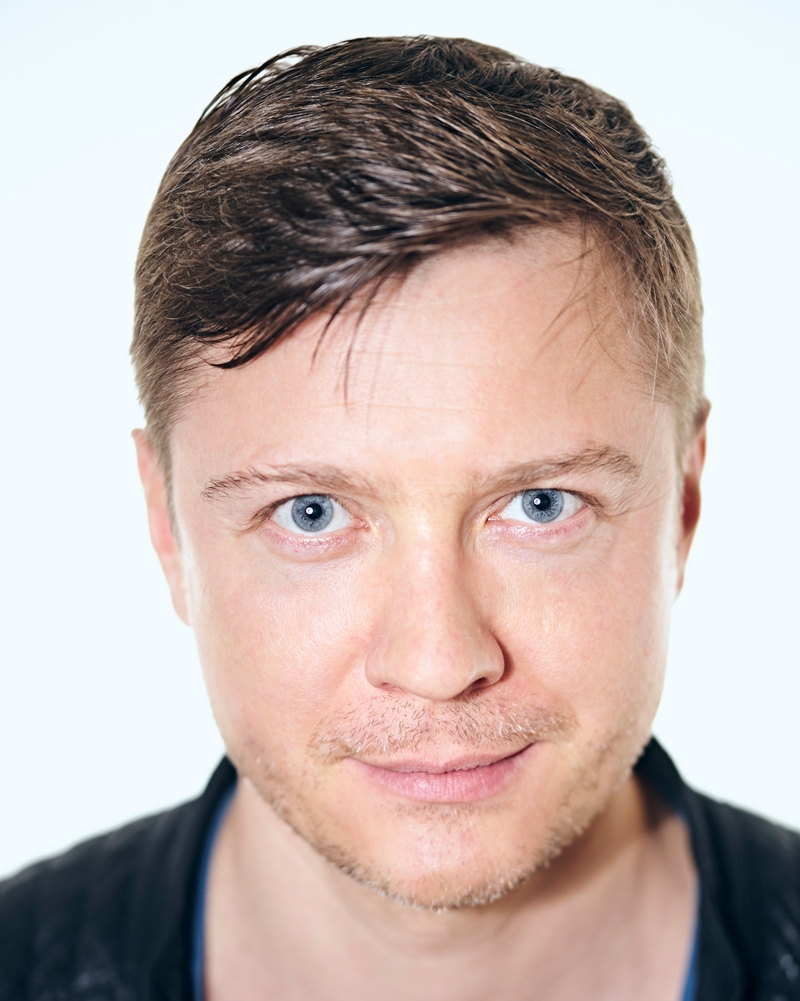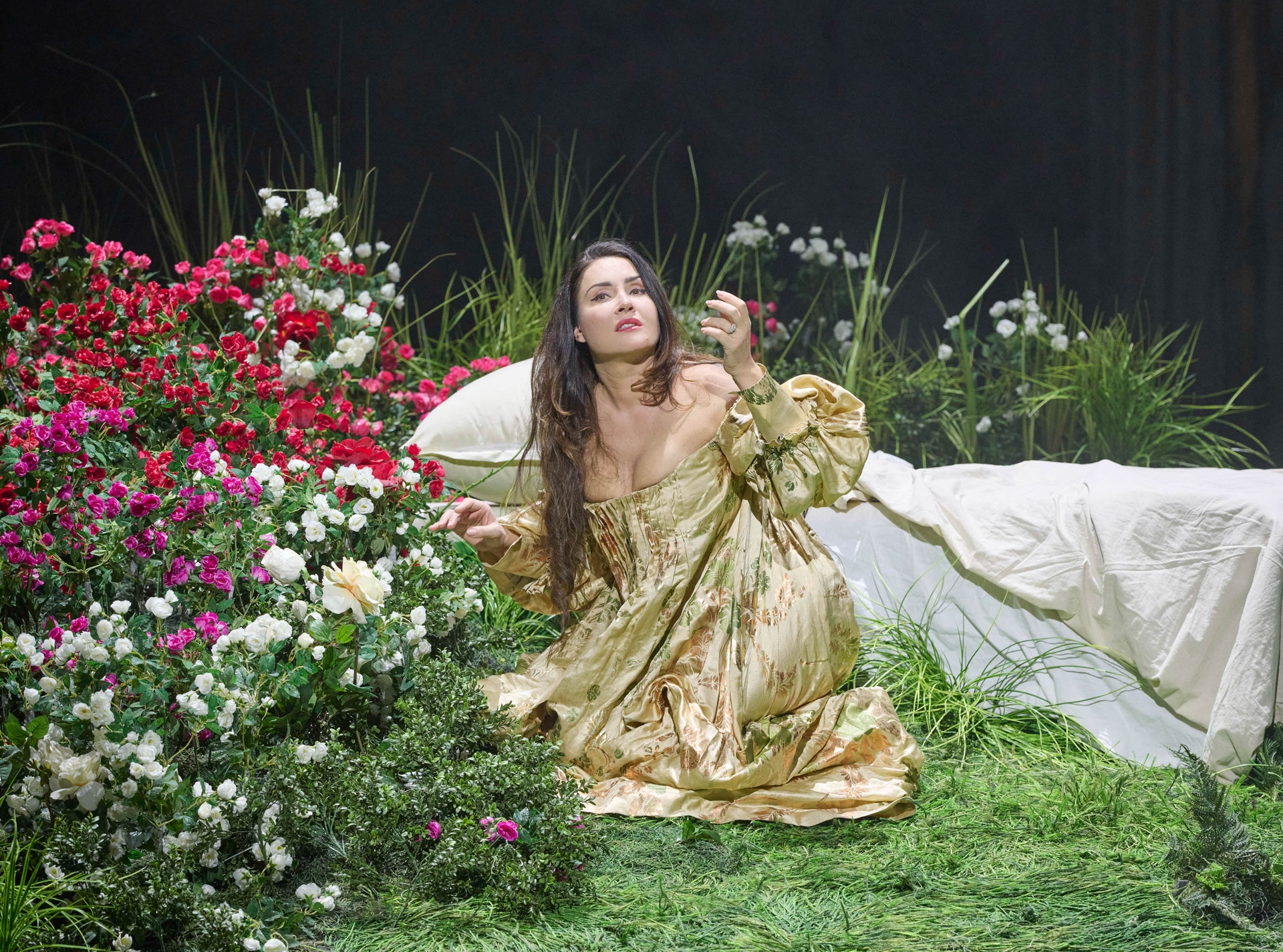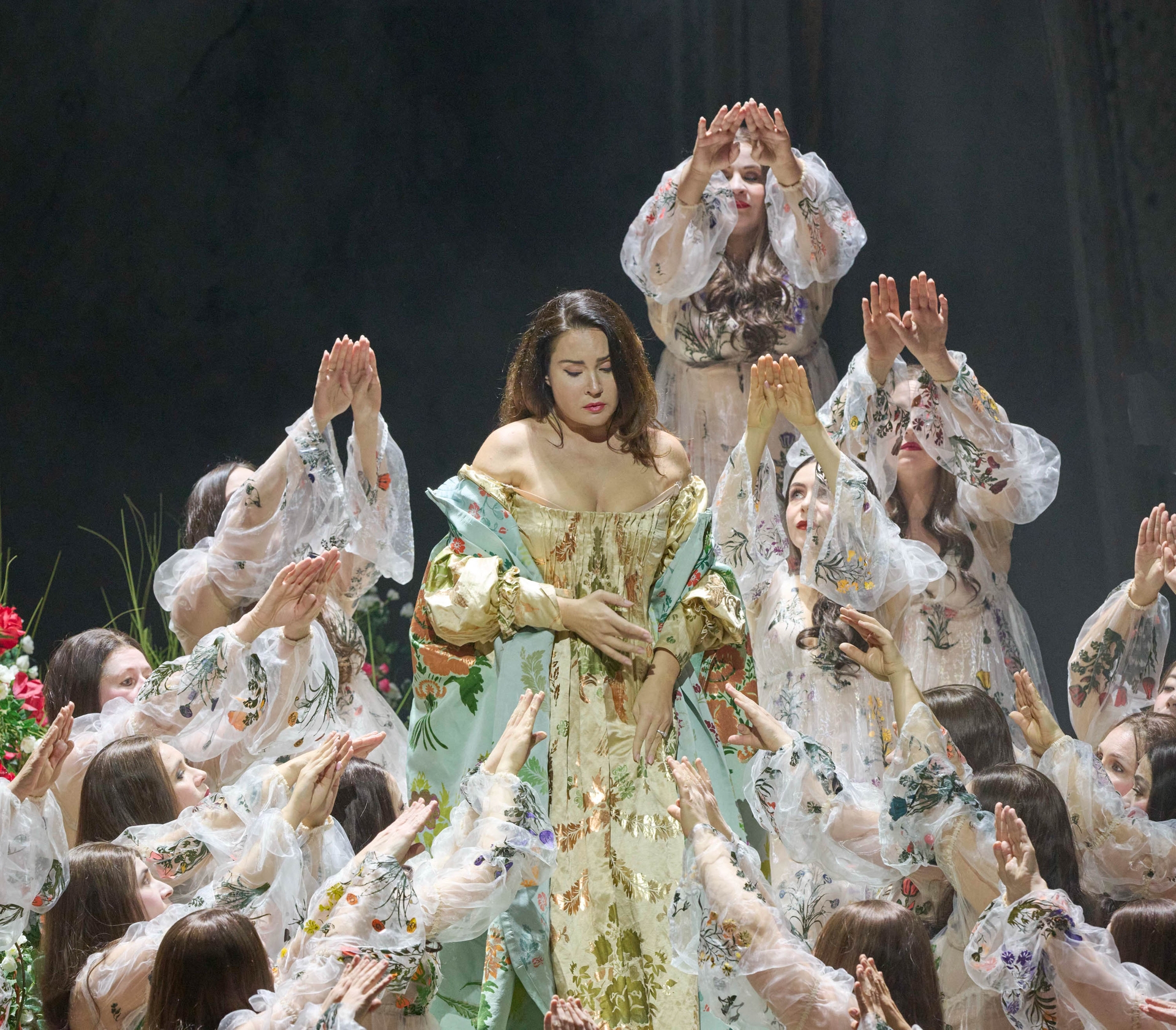"Art is like sanding a surface with sandpaper"
Interview |
What were your first impressions when listening to Iolanta?
Evgeny Titov: First of all, it was great for my perception of music and also interesting to stage an opera in my native language for the first time. It's different when you really understand every word. And then my impression was that it was very "Tchaikovsky", as strange as that may sound. That there are some really, really great arias. One of them was also a surprise: the first sentence in Robert's aria, "Kto mozhet srav- nit'sya s Matil'doy moyey" ["Who can compare themselves to my Matilda"], is a kind of catchphrase in Russia that has taken on a life of its own. People use it as a figure of speech without knowing the context.
Like the German "Mein lieber Schwan"?
Something like that. I was very surprised that this aria was from Iolanta(laughs). And yes, to come back to the listening impressions, of course an incredibly impressive finale.
A good piece?
It's certainly a good piece, it's not an easy piece. Iolanta is such a linear story. The danger is that you've seen it and think: "I've been to the theater, that was a fairy tale, it was beautiful, they sang, she didn't see at the beginning and then he said: Now you have to see, and then she said, all right, I'll see for love. Miracle, miracle - she sees. So what?"
But the path from not seeing to seeing is quite complicated?
That's true, there's an incredible amount in it. But when I first encountered the play, I looked at the arc of tension and I had this question: "What could I do with it as a director?" Of course, the whole complexity of seeing and not seeing quickly becomes apparent and you understand what is interesting about the piece. But my first impression is perhaps the answer to the question of why this opera is not staged so often - not because it is not musically interesting, because it is. But you ask yourself: how can it be staged in such a way that it is really captivating?
How can you?
I find it incredibly interesting now. We've delved so deeply into it, I can philosophize about it for a long time... but we also discovered many aspects in the rehearsals that surprised me. Sonya Yoncheva, our Iolanta, for example, said something during rehearsals that totally fascinated me. She said: "Of course my father, the King, loves me. But he is ashamed of me. I'm not complete because I'm blind."
I had never thought of it like that before. And at the same time, I had worked very hard with our René Ivo Stanchev on an obsession with Iolanta's blindness and healing. Simply out of intuition. I believe that intuition plays a bigger role in art than knowledge. But when Sonya summed it up like that, it was one of those moments when I thought to myself: this piece is so complex, so sophisticated, so multifaceted. In retrospect, it also seems perfectly logical to me: the figure of the king who can't come to terms with a daughter who isn't perfect - and who loves her very much at the same time. That's just one example of how this story is so rich.
Let's stay with the figure of the father, the king, for a moment. In the first rehearsals, you discussed the conflicts and the characters intensively with the singers, sometimes in lively discussions. The King's motivation was one of the first topics.
The father is completely obsessed, so much so that he no longer pays attention to the means he uses to achieve his goal and how he acts. I think Sonya's idea of saying he's ashamed is terrific. That's how psychology works sometimes: you take one thing for another. You say: "I want to be friends with you", and then you find out that I don't want to be friends with this person at all, but that they remind me of my deceased brother. And it's the same with this father figure. The line between his love for his daughter and his other motivations becomes blurred.
What he thinks is love is actually something else?
Yes, that's what I find so exciting about this father figure. Everything that is contradictory is exciting. Everything that is contradictory has a volume. The greater the contradictions, the greater the volume, and with him it's this violence and this power to destroy, to protect, but also so radical that it almost looks like hostage-taking, like violence: he gets down on his knees and says: "You have to help, and if you don't help, I'll throw you against the wall."
That's incredibly interesting, unbalanced, disharmonious! He is also a character who suffers because he recognizes his own mistakes. Tchaikovsky composed that too: The range in the King's aria goes from a low register that is almost impossible to sing to a high register that is almost impossible to sing. Up to a high F. This is how Tchaikovsky expressed how much this character is struggling. It was incredible for me to experience that: You work, you develop together, you find the character, you establish a pattern - and then you get this confirmation, straight from the score, it's just fascinating.
Of course, you could also say that you just look at the score, it's clearly written there, and you've got the character. But that's not how theater works. It's nice in theory, but not in practice. You have to come to it psychophysically, during rehearsals. And I found it so exciting to experience it that way: it's like you're about to ask for directions and then a sign comes up and you're absolutely on the right track.
What stands out in your description is something that can also be seen in your work at rehearsals: It's all about a lot of energy, which is transferred from you to the singers. It's amazing that this works with everyone involved. Do you have a secret?
Yes, love. They have to feel that you mean what you say, that it's important to you and that you actually love it. If they feel that you really want to love them, that you mean it too, if you really say to each and every one of them, "we're going to ... you and I, we're going to ... this must be so nice with us!" ... And when they really realize that and understand that it's not "fake", then they are ...
Then they open?
Then they say: "Finally!" Because they always learn to be careful and to protect themselves during training. But if you can come and show what I've described, then it will be well received. I really start there, I say I love what I do, I love it, there's nothing better in life. I can describe it with cake.
I love cake, and there's a big cake, a Sacher cake, and you say, "Oh, so delicious!" And not: "Ok, let's cook something and eat something together because it's time, it's dinnertime. You know it's seven o'clock, I know it's seven o'clock, we have to eat, let's cook", no! You have to come with a big appetite and say, "This is your favorite dish! For you and for me!" Not because you signed it and so did I and it's dinner time and we don't have an appetite. Instead, we say: "No, this is my birthday!"
That's exhausting, isn't it?
Harmful to health. Art is like sanding a surface with sandpaper. The faster you rub, the faster you are gone. And the more sensitive you are and the more refined you are, the more beautiful you are, the more beautiful material you are made of, the faster ... If you really lay down on the surface, with full contact, then you have to see how long it lasts.
The way you work, you can only rub very hard and very fast.
Because only then can the most beautiful surface be created.
The peculiarity of your access is also that you said that the king wants his daughter to see, but he wants to decide what she can see.
This is the paradox that goes much further than you might think. Iolanta should learn to see, only then will her father no longer be ashamed of her. But if she does not know the truth, she cannot see: that is what Ibn-Hakia says. And that is simply an ingenious conflict: first being prevented from seeing, then having to see again. I didn't immediately understand what was behind it, but I had the intuition that it must be about that.
In the last picture in particular, you have to stage this "she sees something, and possibly more than she should see" against a huge final chorus thanking God. Has this choir sparked your intuition, has it challenged you to counter it with something?
Rather the other way around. I heard music and I thought: this is the truth coming at you. What I heard in it was the shock, the kneeling before something that is merciless and not sweet, but ... that kills you. And then comes a moment when it's as if the music is saying: this is how it is, this is how the whole world is. You can hear it very clearly.
So once again: the production arises from the music.
It's all in the music if it's a good composer. You just have to open your ears.
The interview was conducted by Nikolaus Stenitzer. You can find the complete interview in the Iolanta program bookletof the Vienna State Opera.
How do I get a program booklet?
The program booklet for the performance of the day is sold before the performance and during the interval by our Audience Service. Program booklets for other performances are available at any time in the opera foyer and at Hamtil & Sons at any time. Each program costs €7.50.
All our program booklets are also available as digital versions. You can order them at any time in our Online shop and download them. Digital program booklets cost €3 or less.



